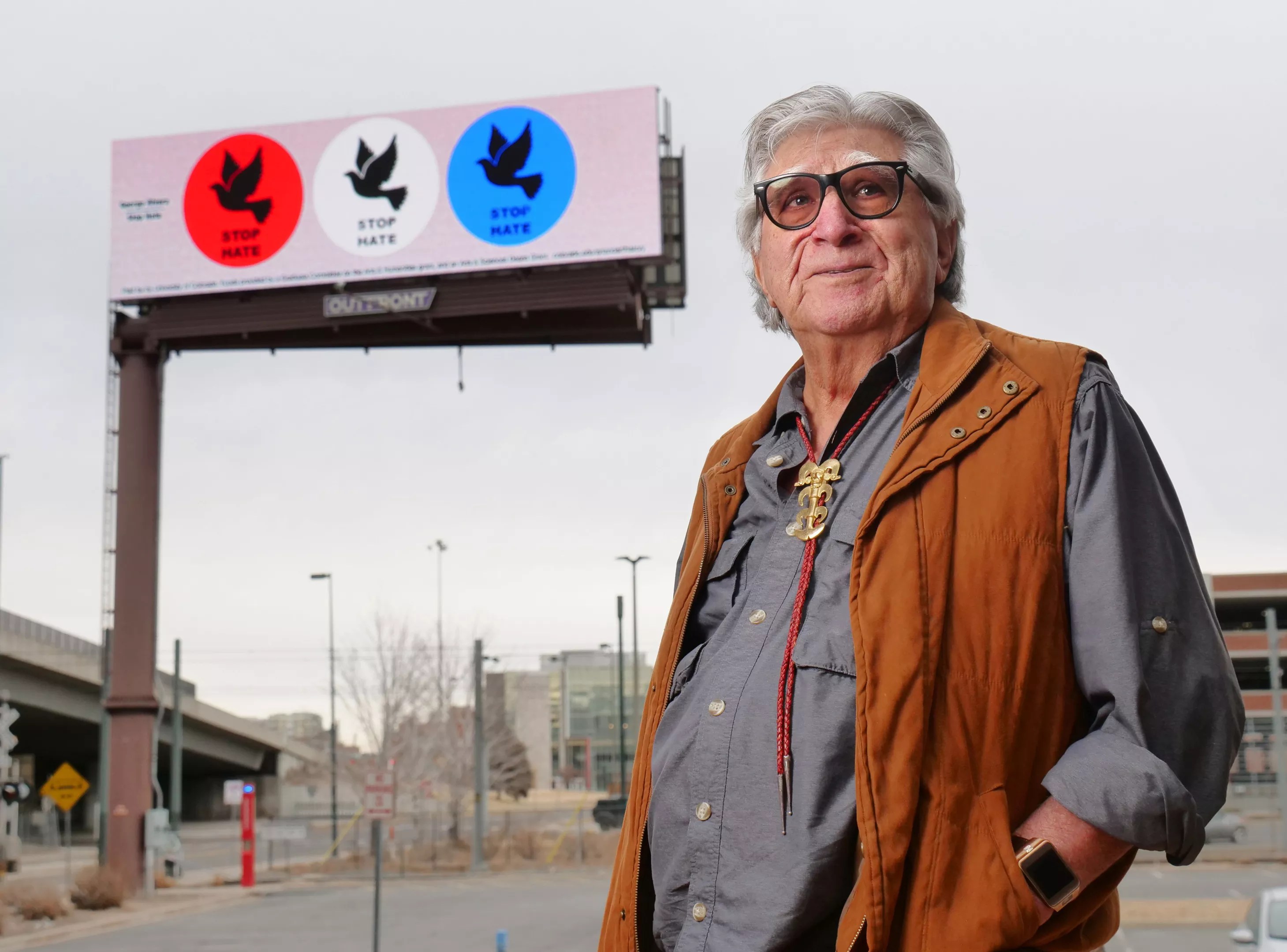
Casey A. Cass/University of Colorado

Audio By Carbonatix
Artist George Rivera’s message printed on a billboard at an Interstate 25 off-ramp at the Auraria campus seems simple: “Stop Hate.”
But in 2021 – as political violence continues to rock the United States, the country clashes over a longstanding legacy of racism and tempers are high – stopping hate does not seem so simple. The University of Colorado Boulder art professor hopes that by sharing those two words, without pointing fingers, he can nudge people to reflect on the hatred that exists within themselves and why it’s there.
While Rivera has had many gallery exhibitions, he didn’t want this concept confined to a white cube.
“I wanted to make it public,” he says. “A lot of people don’t go to traditional venues like museums and galleries. There is a certain clientele and audience that does that, but a billboard communicates with anyone driving down the highway.”
Even before the new billboard went up, though, he’d been spreading the message.
“I first showed the red circle with ‘Stop Hate’ and the black dove at an exhibition at the Center for Visual Art on Santa Fe Drive,” he says. “I had a big mural artwork there and a bunch of buttons that say ‘Stop Hate.’ The work was about the border and the border wall – and how that initiates hate. That was the first time I used that concept, and I used it at the university at a minor exhibition that said ‘Stop Hate.'”
Through the Artnauts collective, most of Rivera’s work has been geared toward international audiences, often focused on places entrenched in longstanding conflicts – Uganda, Palestine, South Africa, Columbia, Russia and Korea. Rivera founded the group in 1996, and since then has stayed busy addressing global issues with more than 350 artists from around the world.
“Mainly, I see myself as an ambassador of goodwill for Americans,” he says. “I want [people in other countries] to see another side of Americans – a side that cares about what’s going on in the world.”
But this year, Rivera decided to put more focus on the United States as it becomes increasingly embroiled in political violence. “I need to communicate with my own country right now,” he explains. “Our democracy is being threatened. Our acceptance of one another is being ruptured.”
For the billboard, he used the colors of the American flag: red for Republicans, blue for Democrats, and white as a color comprised of every color representing people of all ideas and ideologies mixed together.
“I wanted to communicate to others that hate is not a thing that we want to have in the depth of our spirit, and we can do better,” he says. “You have to examine yourself first and see if you have that.”
The conversations that Rivera and the Artnauts have long inspired have rarely been easy ones, and the Stop Hate campaign is no exception. But if the country is going to confront its long history of racial and cultural violence, he believes it’s important to acknowledge hatred and approach those challenging discussions with reason.
“I think it’s very difficult today to talk to others who think differently than we do, and then many times when you move it into a confrontational dialogue, it goes nowhere,” he says. “We’re living in a time where it’s so prevalent – hate – where we have to find another approach to it that will get people to examine the phenomenon of hate in their own being. Hate enters the spirit, and it lessens our humanity, and so we have to keep it out of there if we can. It occupies too much time, it’s stressful, it takes too much time, and it takes away from life itself.”
Learn more about George Rivera’s work at the artnaut website.